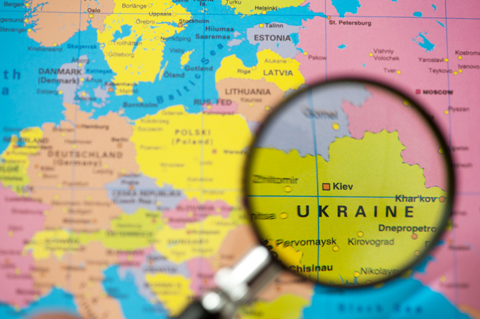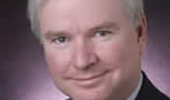 “If we are talking about Ukrainians making their own choice, they need support from the outside world, and they need it united,” said Dr. Steven Miner on CBC Canadian Radio.
“If we are talking about Ukrainians making their own choice, they need support from the outside world, and they need it united,” said Dr. Steven Miner on CBC Canadian Radio.
CBC interviewed Miner, Professor of History and Director of the Contemporary History Institute at Ohio University, Feb. 26 on “Vested interests in Ukraine and the geopolitical consequences of the conflict.”
Competing rallies have now been reported in the pro-Russian region of Crimea. What is playing out in Ukraine is nothing less than a political and economic struggle among some of the biggest players on the planet, all of whom are now recalculating, CBC reported on the show The Current.
Host Anna Maria Tremonti asked Miner, “How concerned is Russia, how nervous is Vladimir Putin at the moment about the direction Ukraine is going?”
“I think he’s very concerned,” Miner said. “If Ukraine turns Western and aligns itself with the EU—and above all with NATO—then that brings the West right up to the border of Russia. And that threatens security in a number of ways, economically, politically, socially. I think he’s concerned that disorder of the sort that happened in Kiev could spread to Russia itself. And there have even been crackdowns on demonstrations in Russia.”
“How will Russia’s natural gas relationship with Ukraine and the EU play out here?” Tremonti asked.
“Putin’s already shown that he’ll use the natural gas card…. Russia became an empire before it became a nation. And its sense of nationality is very tied up in being an imperial state. The problem with this sort of disintegration and secession—I’m not calling it secession because Ukraine is an independent state—but Russia could face the same sort of disintegration process within its own borders. And I think that’s one concern that really has not gotten a lot of play. Russia is a multinational empire. with national groups that have their own sort of national space within Russia itself. Putin wants to crush this sort of thing in Ukraine because he can see it creeping into Russia. And he’s willing to use natural gas and oil as tools to keep Ukraine in line.
“Although Europe can get oil and natural gas from other sources including the United States, it’s still disruptive. Gas depends on a steady flow, and if you don’t have a steady flow then you have an economic crisis very quickly,” Miner said.
Russia also has a military consideration within Ukraine.
“First of all it has military forces in the Crimea, which is predominantly Russian. There may only be 17 percent Russians in Ukraine, but most of those are in the Crimea. And the Russian Black Sea fleet is based in the Crimea, so they already have military troops there. Local authorities in Crimea have already said, ‘We don’t want any part of what’s going on in Kiev,’ so that’s one thing. Another thing is the economic crisis. In the last two days, 7 percent of bank deposits in Ukraine have disappeared. They’ve gone west, so there’s an economic crisis not only of governmental proportions, but also on an individual level.
“And finally you asked about the EU and NATO. The Russian official spokesperson has said that joining NATO would be crossing the red line and they would use all means necessary to stop it. They did not like the advance of the EU and NATO to the three Baltic states—Estonia, Latvia and Lithuania. They don’t want to see that happen with Ukraine, which they see as part of Russia and part of the Russian national space. ”
“Steve, there’s another player in here, and I don’t know how you read this. China is apparently the biggest foreign land owner in Ukraine. Do you expect it to get more involved, even behind the scenes?” asked Tremonti.
“It’s hard to tell. Of course China is awash in money in a way that none of the other players are. They certainly don’t like to see, if you will, ‘people power.’ This is something that the Chinese government shudders at whenever they see it. They are pulling closer to Russia, and they may even have been involved in Putin’s idea of creating an alternative to the EU, a Eurasian Union. I agree with both of your guests that what this requires is solidarity on the part of Western supporters of Ukraine.
“It’s all well and good for (U.S. Secretary of state John) Kerry to say that it’s not a zero-sum game, but that’s what Putin sees it as. And that is actually, I think, what the Chinese see it as. Either the EU is going to draw Ukraine toward itself, or the Ukrainians are going to choose to go that way, or else they are going to go east. but if they go east it probably won’t be as a result of free choice. So if we are talking about Ukrainians making their own choice, they need support from the outside world, and they need it united.”

















Comments